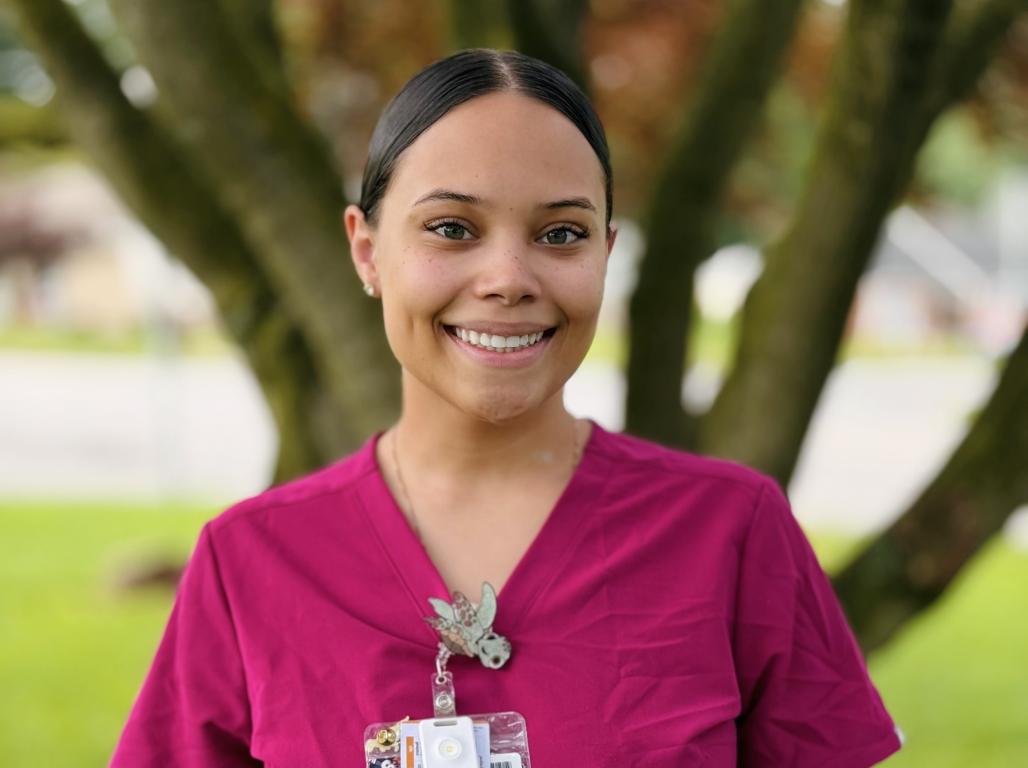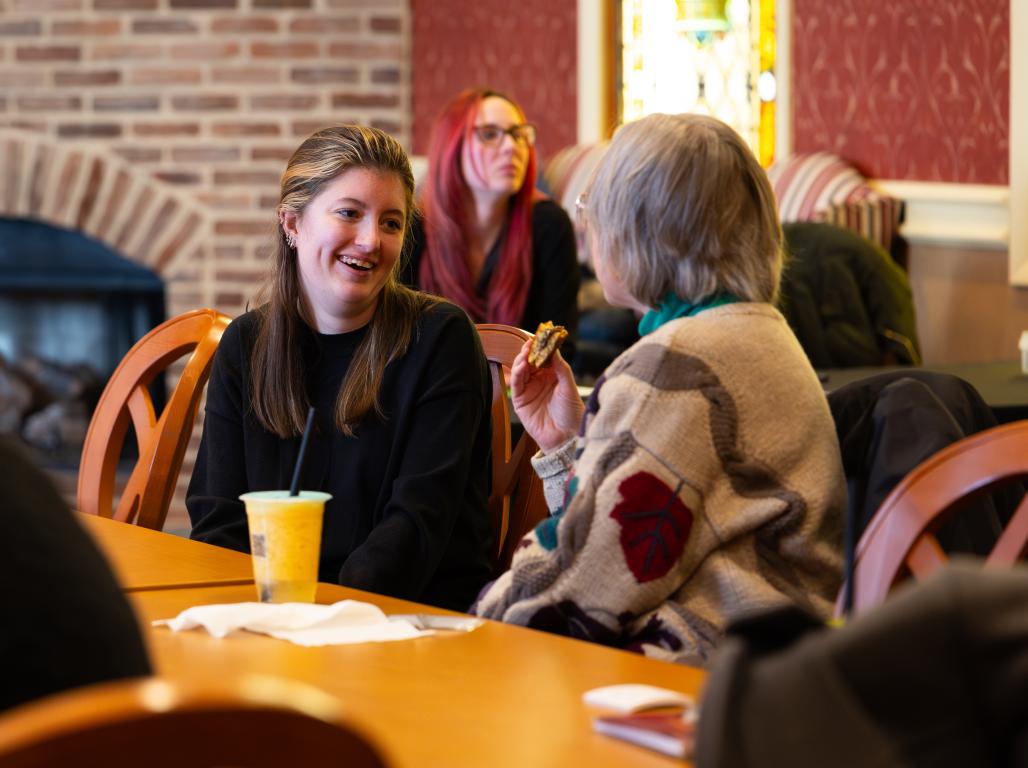In her first interview as a prospective student, Kaitlin Dannenberg ‘24 (Long Island, NY) asked Dr. Charles MacVean, Dean of the Kinsley School of Engineering, if York College had a beekeeping club. When Dr. MacVean, whose background is in entomology, regretfully responded, “No,” Kaitlin saw an opportunity.
“Well, I guess I’ll just have to start one,” she told him.
Kaitlin is a nontraditional student from Long Island, NY, and a double major in Environmental Horticulture and Environmental and Sustainability Studies. She formed the Beekeeping Club in the fall of 2022 and is currently working with the College to find a suitable place to put beehives.
Because the Club’s formation coincided with the construction of the Appell Horticulture Center on Main Campus, Kaitlin initially proposed plans to place beehives on the building’s roof. That proposal proved cost-prohibitive.
Kaitlin and the Club’s Vice President, Hannah Zinn ‘24 (Baltimore, MD), were undeterred. The following week, the two met with other aspiring apiarists at the Club’s biweekly meeting and began brainstorming possible on-campus locations for honey bee colonies.
“We’re thinking about West Campus,” says Kaitlin. “There’s running water there, good shade, and not much pesticide use. We are pretty open to anywhere the campus will let us put bees.”
Dr. Kay McAdams, the Club’s faculty supervisor, has been a beekeeper since 2018. She is a volunteer educator for the York County Beekeepers’ Association and often takes students to an apiary near Apple Hill Medical Center in York. She has three colonies at that location, which, in June and early July—peak months for bees—each house between 40,000 and 60,000 bees. This past season, Dr. McAdams harvested over 150 pounds of honey.
Like most apiarists, Dr. McAdams is particular about how she acquires her bees, and she encourages members of the Beekeeping Club to be particular as well. “I am very opposed to the importation of bees from elsewhere in the United States; I think that is a terrible practice,” she says. Bees imported from the South, for example, “are not winter-hardy, and they…can introduce pathogens and diseases. There are bees here, and I prefer to support my local beekeepers.”
According to Kaitlin and Hannah, current club members are unanimously in support of bringing bees to campus. “This year, at our first meeting, 100% of the members said they wanted to see bees,” says Kaitlin. That has not always been the case. “In the past, we had a decent amount of members who were like, ‘I want to save them, but I’m afraid of working with bees.’ But [honey bees] don’t really want to sting you,” she says. “[They were] thinking of yellowjackets.”
“Whenever you bring people out to look at bees, you kind of have to gauge how they are going to react,” says Dr. McAdams. “Some people freak out, but most are fine and are surprised they’re fine. [Bees] have things to do. They don’t dive-bomb you; they just go about their business.”
Dr. McAdams believes that ensuring the College that there will be a workforce available to manage the colonies will go a long way toward the Club accomplishing its goal. “We’re going to have to develop a plan… for general hive management,” she says.
Kaitlin and Hannah are developing that plan and hope to enlist other student clubs to manage potential colonies successfully. “Once we have them,” says Kaitlin, “then we get to learn about splitting the hive. If we lose a hive one year or get mites, we can bring in the entomology class. It’s an ongoing experience.”
For Kaitlin and Hannah, their interest in bees can be encapsulated in one word: pollination. “I think a lot of our club members are really focused on pollination,” says Hannah, also an Environmental Horticulture major. This appears true for most apiarists, Dr. McAdams included. “As a beekeeper, I am very aware not just of my bees but of the totality of the blooming world. It just connects you to the space that you’re living in,” says McAdams.
Last spring, the Club hosted a Pollination Awareness Event during the weeks leading up to Earth Day to educate the YCP community on the importance of a healthy population of pollinators on campus. Kaitlin says that the event revealed that student interest in bees is high.
The Club is continuing to work with the College to find a suitable on-campus location for bees. In the meantime, they are staying busy. In October, they partnered with the new Paranormal Club to host a nature-themed costume contest in the days leading up to Halloween. In the weeks leading up to Earth Day ‘24, the Club has planned another Pollinator Awareness Event, during which they hope to partner with other clubs to host a cleanup of Jackson Street. “We’re ready to get our hands dirty,” says Kaitlin.
As Kaitlin and Hannah wait on approval from the College, they’re hoping other students with an interest in seeing pollinators brought to campus will speak up. “It never hurts for people to talk about their interest in promoting different environmental incentives on campus,” says Hannah. “Making your voice heard is what ends up really making a difference.”
The Beekeeping Club meets every other Wednesday at 5 p.m. in the Keystone Room, lower level of the Iosue Student Union. Interested students can fill out an application at a meeting or contact Kaitlin Dannenberg.




